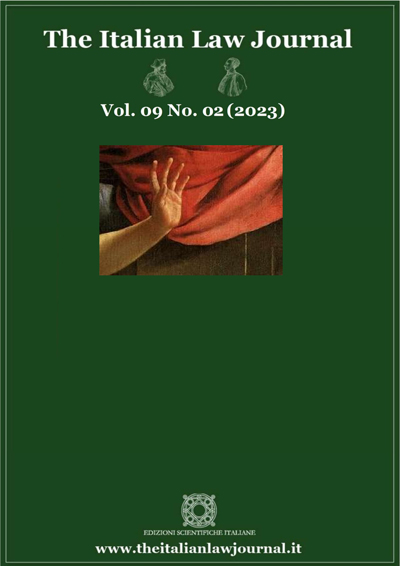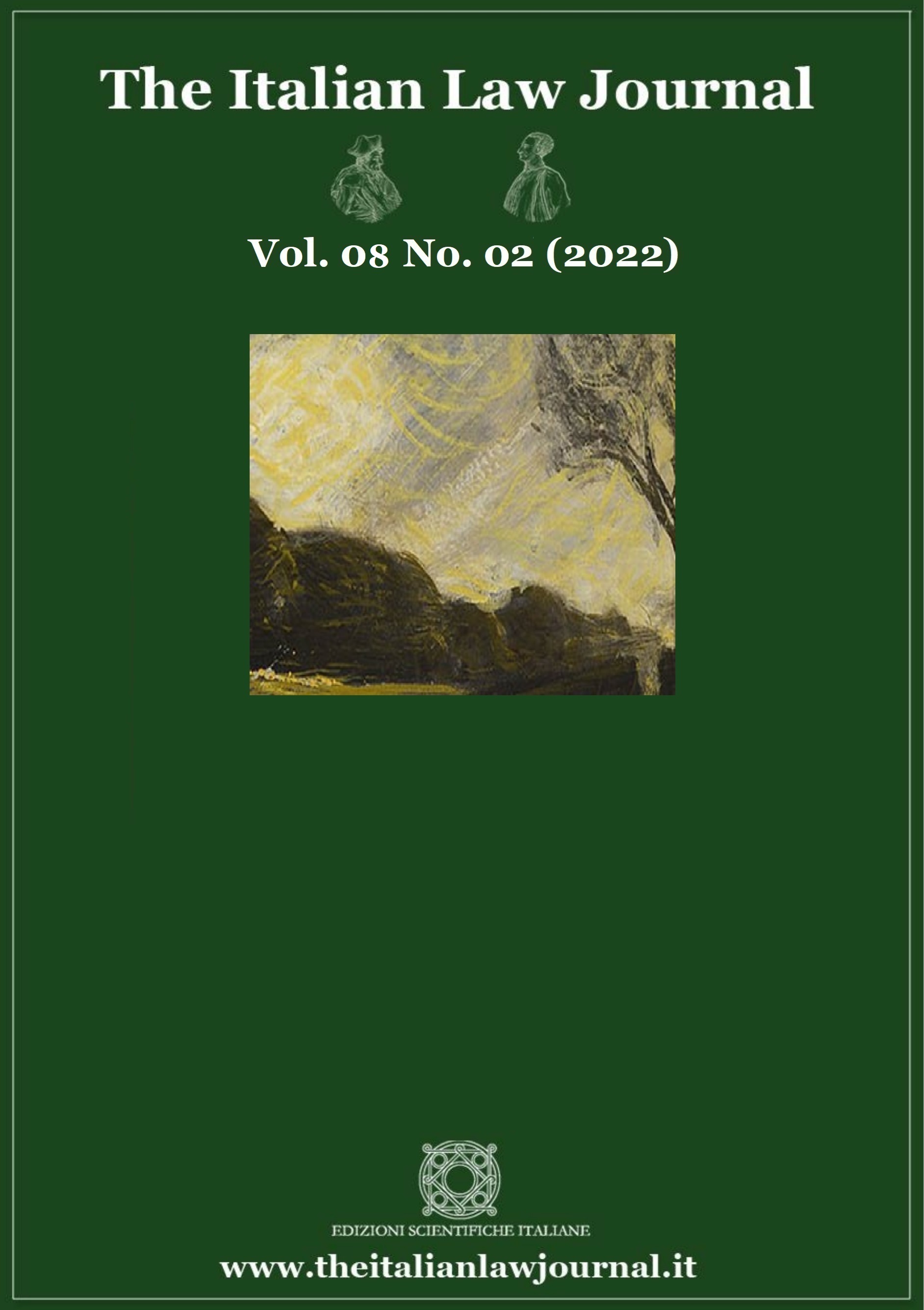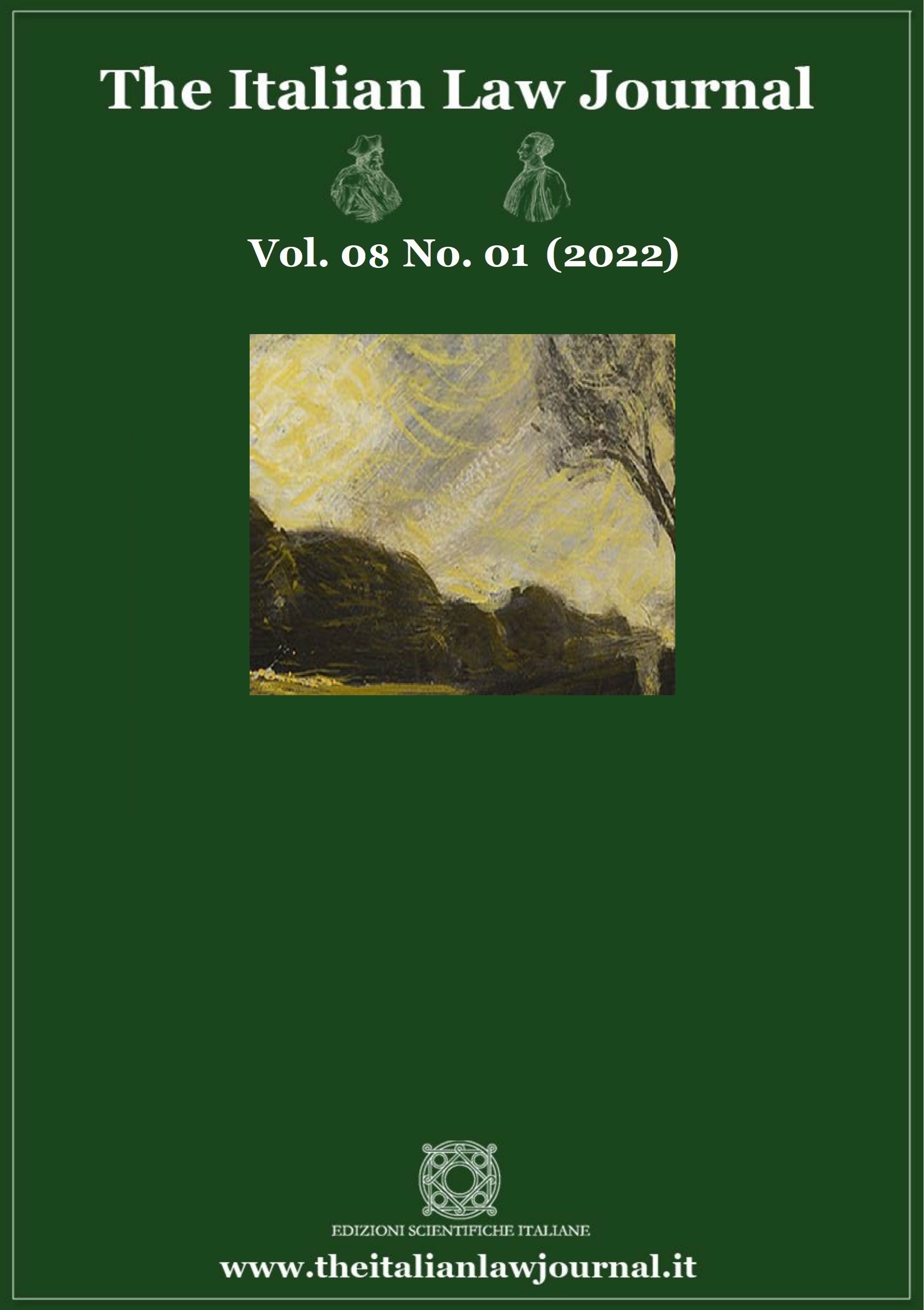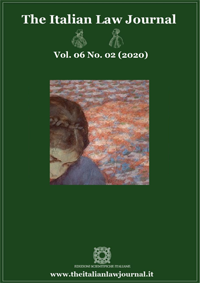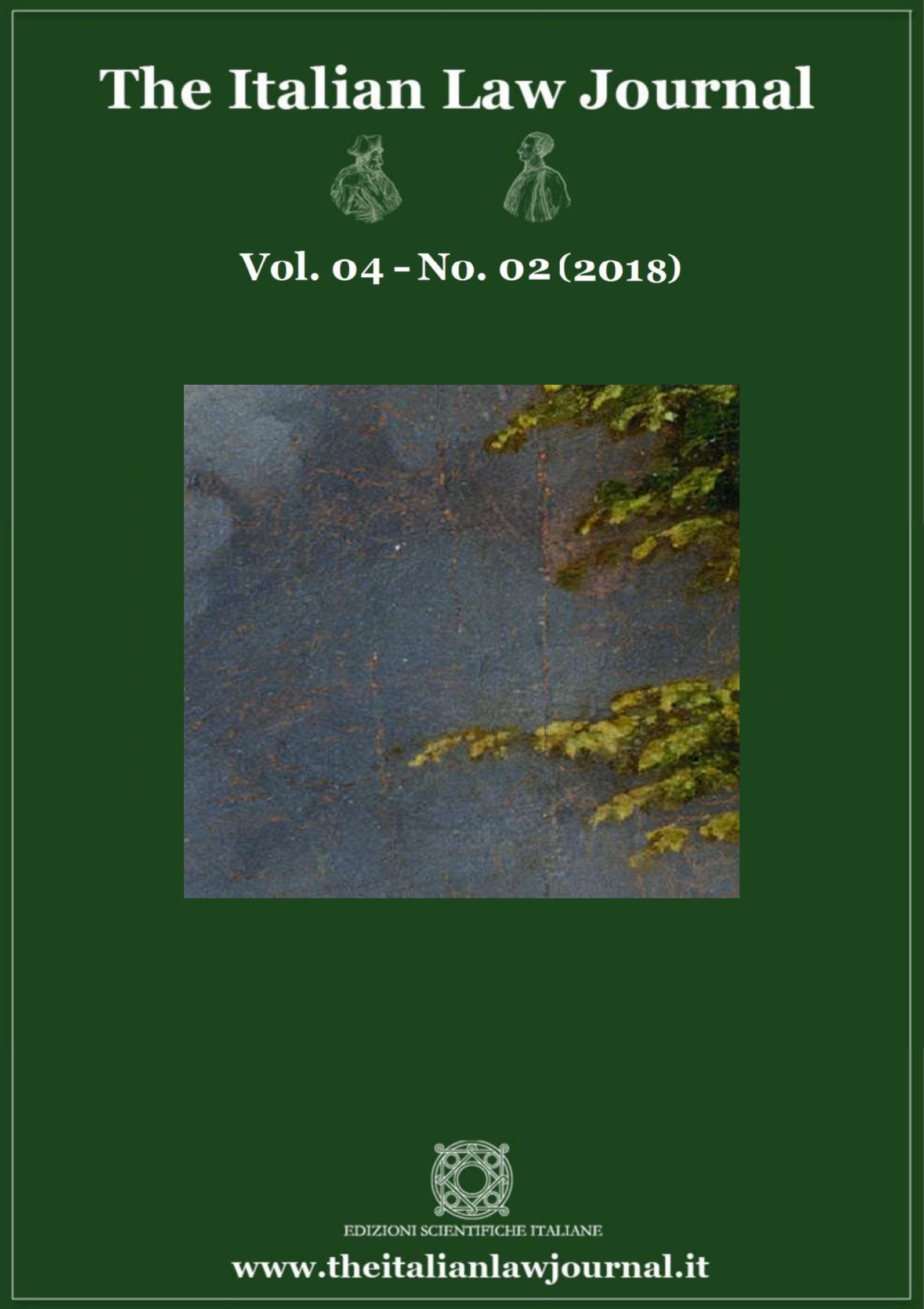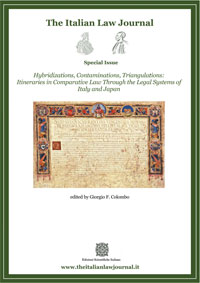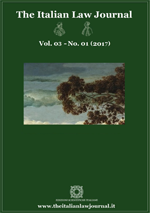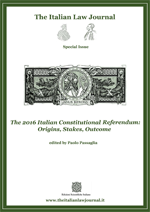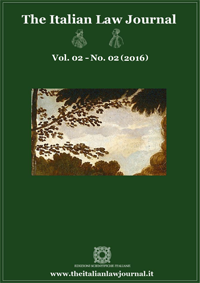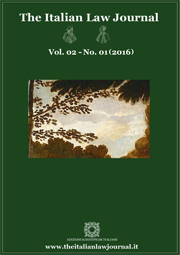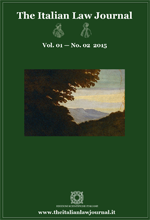9 THE ITALIAN LAW JOURNAL NO. 1 (2023)
The Efficiency Function of the Numerus Clausus Principle of Property Rights in Land
by Enrico Baffi This paper seeks to identify a possible justification in terms of economic efficiency of the numerus clausus principle of property rights in land. At the outset, the current law in several legal systems is examined to show that this principle appears to be present everywhere. DOI 10.23815/2421-2156.ITALJ ISSN 2421-2156
The two justifications that have been proposed in economic terms to explain this principle are then considered: (1) the information costs rationale according to which the property rights that can be established in a piece of land are limited in order not to excessively increase the information costs that potential buyers need to bear (indeed, property rights in land run with the land) and (2) the anticommons rationale according to which this limitation stems from the need to prevent some lands from becoming inefficient anticommons.
A third theory is then put forward according to which the numerus clausus of property rights in land stems from the need to prevent the creation of property rights that may become inefficient over time and cannot be eliminated through the use of a contract because of the high transaction costs due to the existence of a bilateral monopoly. Indeed, the property rights cannot even be eliminated by a unilateral act of the owner of the burdened land since they are protected by means of property rules.
The final section analyzes the benefits that would arise if legal systems provided rights that run with the land but are protected only by means of liability rules and seeks to understand why rights of that kind are not currently a feature of legal systems.








